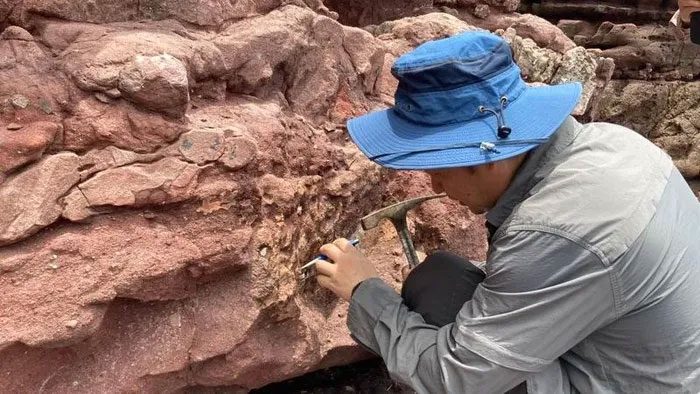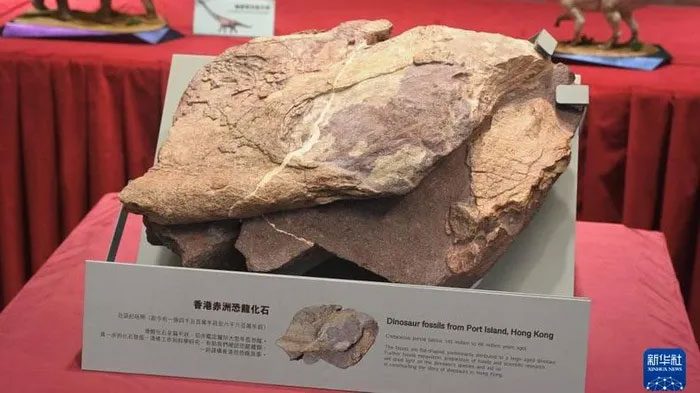Chek Chau Island, Hong Kong (China) has made a groundbreaking discovery with the excavation of dinosaur fossils from the Cretaceous period. This finding holds significant importance for the study of Hong Kong’s ancient ecosystems.

Archaeologists collecting fossil samples on Chek Chau Island. (Photo: Xinhua)
Chek Chau Island is located in the northeastern part of Hong Kong (China) and is part of a UNESCO Global Geopark. In March of this year, after receiving reports of potential vertebrate fossils in the sedimentary rock layers on the island, the relevant authorities in Hong Kong conducted surveys and organized sample collections.
Through the process of slicing the fossilized bones and analyzing them under a microscope, experts have concluded that these are fossils of ancient dinosaur bones from the Cretaceous period, although further research is needed to determine the specific species.

Dinosaur fossils discovered on Chek Chau Island. (Photo: Xinhua)
This discovery is crucial as it provides new evidence for studying the ancient ecosystems of Hong Kong (China).
To facilitate ongoing surveys, excavations, and future research, access to Chek Chau Island is currently restricted to authorized personnel only.
Starting from October 25, these dinosaur fossils will be displayed and introduced to the public at the Hong Kong Archaeological Discovery Museum (China).


















































